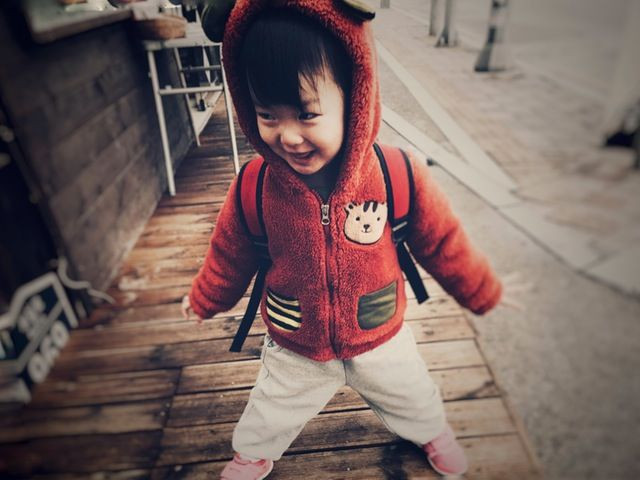Early Childhood Development: Too Much Background Noise May Inhibit Toddler’s Language Learning Skills

We all want the very best for our children, and that includes giving them a safe, peaceful environment in which to learn and grow. However, some parents may be hindering their children’s language development without even realizing it. A new study has found that too much background noise in a home or school can make it difficult for toddlers to learn new words.
For the study, now published online in the journal Child Development, researchers from the University of Wisconsin-Madison had 106 children aged 22 to 30 months take part in three experiments in which they were taught names for unfamiliar objects and then tested on their ability to recognize the objects when they were labeled. The team had the children listen to sentences featuring two new words. The children were then taught which objects the new names corresponded to, and then tested on their ability to recall these words.
In order to understand how varying levels of background noise affected the toddlers’ ability to learn, the team repeated the experiment with different amounts of background noise. In the first experiment, 40 toddlers aged 22 to 24 months heard either loud or quieter background speech when learning the new words. Results showed that only the toddlers who were exposed to the quieter background speech were able to learn the words successfully.
In the second experiment, a different group of 40 toddlers (aged 28 to 30 months) were put to the same test to see if older toddlers were slightly better at learning among distractions. However, the same results were repeated and once again it was determined that the toddlers were only able to learn effectively when the background noise was quieter. A third experiment solidified these findings and showed that toddlers older than 26 months were still only able to learn new words and their meanings in quiet environments.
In summary, the study revealed what you probably already suspected: It's difficult for children to learn in noisy environments. However, we may not understand just how much of a hindrance noisy environments can be for children at such a young age, and the role noise plays in language acquisition.
"Modern homes are filled with noisy distractions such as TV, radio, and people talking that could affect how children learn words at early ages,” said lead study author, Brianna McMillan, in a recent statement. “Our study suggests that adults should be aware of the amount of background speech in the environment when they're interacting with young children."
Although it's nearly impossible for children to be in a completely quiet environment, as suggested by the study, parents may benefit from doing their best to reduce the amount of background noise their children experience in the home in order to maximize their language learning experience.
However, while limiting background noise can be helpful, it may not pay to raise children in a completely silent environment. A study published earlier this year suggested that introduction to positive noise, such as giving kids a musical toy, can be surprisingly beneficial. For the study, researchers had 47 nine-month-old babies raised in a monolinguist English household take part in either a musical intervention group, where they were given musical toys to play with, or a placebo intervention, where they were given non-musical toys to play with. The team then took brain scans of the babies while they listened to both tones and sounds from a foreign language; results showed that the babies who were given the musical intervention had enhanced activity in the auditory and prefrontal cortical regions, areas associated with language and language learning .
The researchers suggested that the musical experience and exposure may have helped the babies to better detect certain patterns in sounds and therefore better prepare them to predict the timing of future auditory stimuli, such as speech.
Source: McMIllan BTM, Saffran JR. Learning in Complex Environments: The Effects of Background Speech on Early Word Learning. Child Development. 2016.
Published by Medicaldaily.com



























